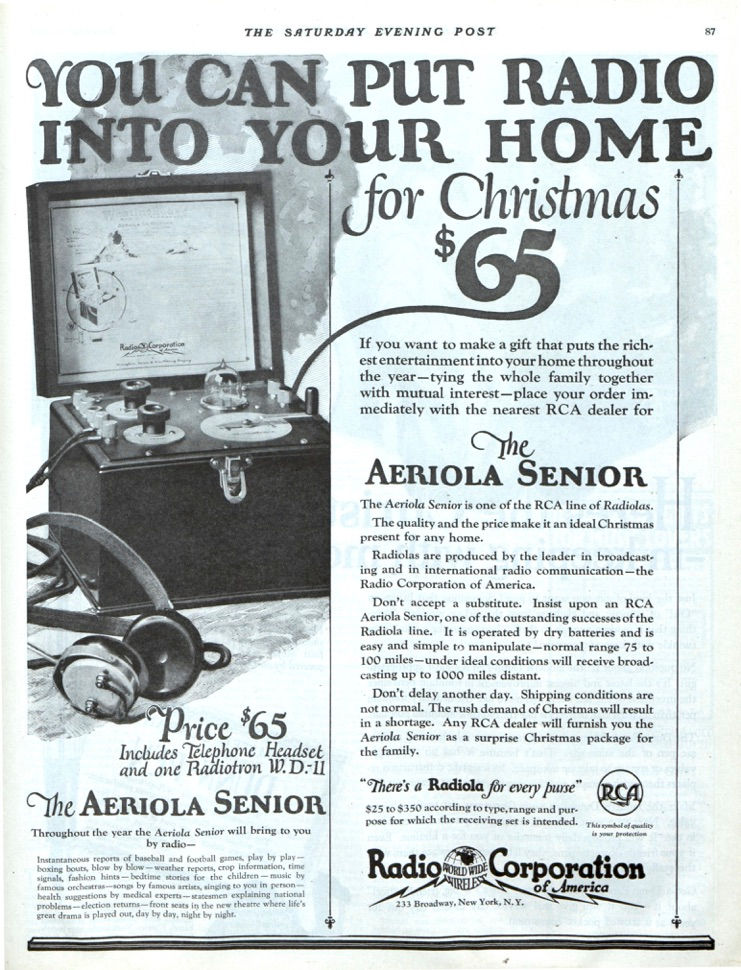Exploring the Genesis of Radio Programs: Fessenden's Prelude to the Met Opera Broadcasts
- BeepBoop

- Dec 8, 2023
- 3 min read
Radio, a transformative medium that has shaped the way we consume information and entertainment, has a rich history marked by pioneering moments. Among these milestones are the inception of the first radio program and, subsequently, the advent of commercial radio broadcasts. In this article, we delve into the origins of radio programming, comparing the groundbreaking moment of the first radio program with the emergence of the first commercial radio broadcast.
The Birth of Radio Programs:
On Christmas Eve in 1906, Reginald Fessenden, a Canadian inventor and radio pioneer, made history by conducting the first intentional radio program. Broadcasting from his experimental station in Brant Rock, Massachusetts, Fessenden transmitted a live performance of the opera "Cavalleria Rusticana." This momentous occasion marked a pivotal step forward in radio technology, showcasing the potential of voice and music transmission over the airwaves.
(Recreation in video)
The significance of Fessenden's broadcast lies not only in its technical innovation but also in its role as a precursor to what would become a ubiquitous form of communication and entertainment. The opera broadcast laid the foundation for the development of radio programming, setting the stage for the diverse array of content we enjoy today.
The Commercial Era Begins:
Fast forward to August 28, 1920, and a new chapter in radio history unfolds with the airing of the first commercial radio program. The "Queens' Messenger," produced by radio station 8MK (now WWJ) in Detroit, Michigan, was a sponsored broadcast featuring a play that promoted the Detroit News newspaper. This marked the birth of commercial radio programming, introducing a new dimension to the medium.

Unfortunately, there are no preserved recordings available of the "Queens' Messenger" broadcast from 1920. During the early days of radio, the technology to record broadcasts for future playback did not exist, or if it did, it was not widely used. Many broadcasts from that era were transmitted live and not recorded for posterity.
The preservation of early radio broadcasts became more common in later years, but for broadcasts from the 1920s, especially those considered pioneering or historic, the lack of recordings is a common challenge for historians and enthusiasts. As a result, our understanding of these early broadcasts relies on historical records, written accounts, and any related artifacts that have been preserved.
While Fessenden's opera broadcast was a pioneering moment in radio history, the commercial program added a crucial element – sponsorship. Advertisers saw the potential of reaching a broad audience through this emerging medium, paving the way for a symbiotic relationship between content creators and sponsors. The "Queens' Messenger" demonstrated that radio could not only entertain but also serve as a platform for advertising, foreshadowing the economic model that would sustain the radio industry for years to come.
Comparing the Two Milestones:
Both the first radio program and the first commercial radio program played pivotal roles in shaping the trajectory of radio as a medium. Fessenden's opera broadcast showcased the artistic and communicative potential of radio, while the commercial program introduced an economic framework that would fuel the growth of the industry.
Fessenden's broadcast was a testament to the power of innovation and experimentation, highlighting the transformative nature of radio technology. On the other hand, the commercial radio program marked the beginning of a new era, where advertisers recognized the potential of radio as a platform for reaching a mass audience.

Conclusion:
The journey from Fessenden's opera broadcast to the commercial radio program reflects the evolution of radio as a medium that blends artistry with commerce. These early milestones paved the way for the diverse and dynamic world of radio programming we experience today. As we celebrate the anniversaries of these historic moments, we acknowledge the pioneers who laid the groundwork for a medium that continues to captivate and connect people around the globe.
NOTE: This article was written mostly by AI. After reading the initial drafts, a few corrections had to be made as well as clarifications. ~ MVP















































Comments